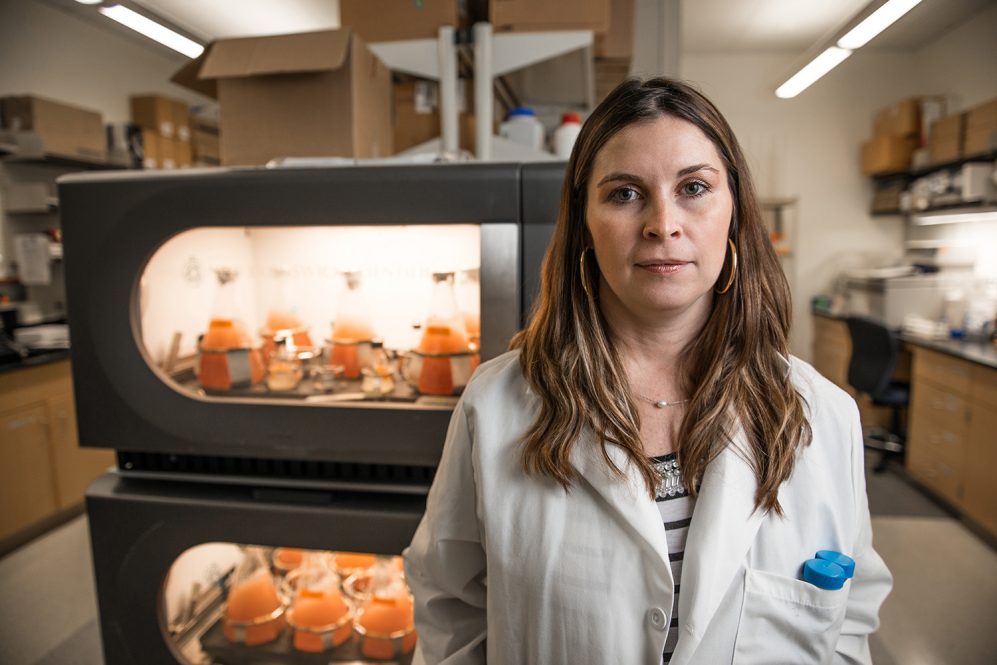The first time Nicole Wagner ’07 (CLAS), ’13 Ph.D. saw a rocket launch she couldn’t help but feel a little starstruck. It was a balmy December day at NASA’s Kennedy Space Center in Florida, and that afternoon a SpaceX Falcon 9 rocket was scheduled to depart on a mission to the International Space Station. As a SpaceX VIP, Wagner had received a personal tour of the center and now had one of the best seats in the house to watch the launch, where she was surrounded by the astronauts who would one day hitch a ride to space on the company’s flagship rocket.
The rocket Wagner had come to see, however, wasn’t carrying humans. It was loaded with supplies and a trunk full of cutting-edge experiments, including one built by Wagner’s company, LambdaVision, and its implementation partner, Space Tango. The shoebox-sized container was filled with bags of bright purple fluid designed to grow artificial retinas in microgravity without the need for human intervention.
The experiment may have been small, but it was an important proof of concept that Wagner hoped would lay the foundation for an entirely new approach to manufacturing artificial retinas. If she was right, it would be the first small step toward a solution that could provide relief to the millions of people living with degenerative retinal diseases back on Earth.
These are progressive diseases that ultimately lead to blindness. People who experience them can have difficulty with everyday activities like driving a car or reading a book. And while there’s no cure, patients can regain some vision by swapping their decaying retinas for implants. The problem is that most retinal implants are electronic and come with a litany of technical challenges including a tendency to overheat.
In 2009, Wagner co-founded LambdaVision with UConn professor emeritus Robert Birge to commercialize the organic approach to producing artificial retinas that Birge had pioneered in his lab. Unlike electronic retinal implants, LambdaVision’s artificial retina is composed of a photosensitive protein called bacteriorhodopsin that replaces rods and cones damaged from retinal degenerative disorders.



